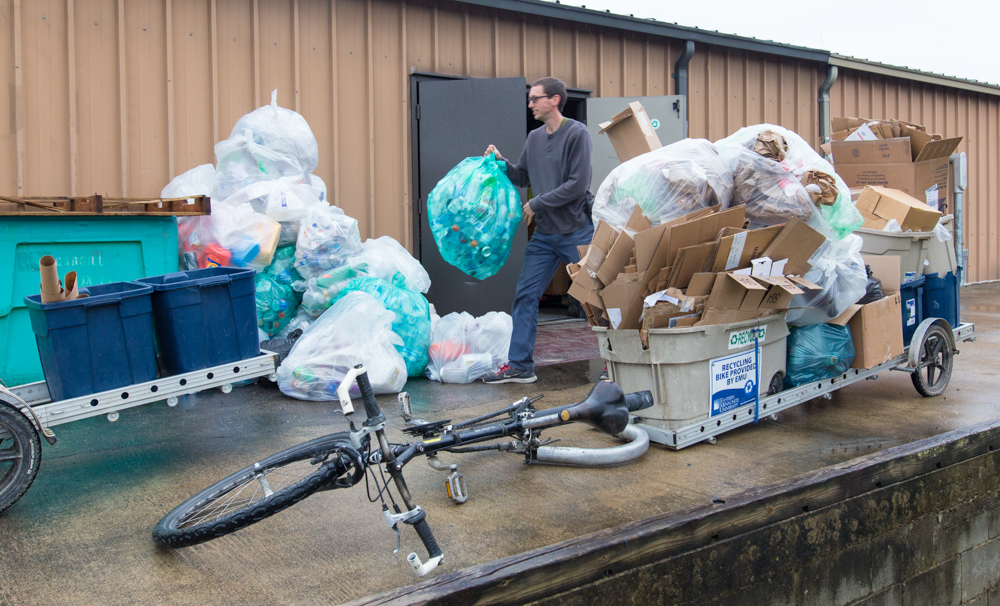For the fifth straight year, Eastern Mennonite University has placed first among participating Virginia universities in the 2019 RecycleMania competition. It also improved its national standing to 34th with its waste diversion rate of 50%, up from 42% – 63rd place – in 2018.
Sustainability and creation care are at the core of life at EMU, both in student groups like the Cycling Club or Earthkeepers and in academic studies of the social, economic and political aspects of environmental sustainability.
Recycling staff and student workers at EMU collect 70 tons annually of recyclable materials from 24 campus recycling points using custom-built bicycles pulling specially-designed, eight-foot trailers that can each haul about 300 pounds at a time.
Student workers and volunteers transport 300-500 pounds of dining hall scraps several times a week across campus via bicycle to the compost piles, which are located behind the Suter Science Center and monitored by the Virginia Department of Environmental Quality. This initiative reduces waste and supplies the campus gardens with rich compost.
More than five million students and staff at 300 colleges in the United States and Canada participated in the eight-week RecycleMania competition, which was designed to educate and challenge university campuses, according to its website. Together they “prevented the release of 99,254 metric tons of carbon dioxide equivalent into the atmosphere, which is equivalent to preventing the annual emissions from 20,895 of cars.”
“RecycleMania is a fun way to communicate with the campus community about recycling and issues surrounding recycling,” said recycling crew leader Matthew Freed.
During the competition his team invited students, staff and faculty to listen to a 99% Invisible episode about the state of recycling after China decided to stop taking U.S. waste a year ago, and to an album recorded only using plastic material: Matmos: Plastic Anniversary.
They also pointed to recent reports about the plastic crisis such as the BBC’s Blue Planet II, the National Geographic plastics issue, and “any number of startling statistics,” Freed said.
One goal of the contest was to raise awareness about the impact of small changes to individual behavior, including choosing alternatives to single-use plastics.
“If one-third of the students and staff reached through RecycleMania used a reusable cup instead of a single-use plastic bottle, it would result in removing about 300 million plastic bottles from the waste stream,” Recyclemania says. “That works out to be about 8.3 million pounds of plastic bottles, which is equivalent to the weight of 25,000 common bottlenose dolphins. Three hundred million bottles would also go around the Earth one and half times.”
